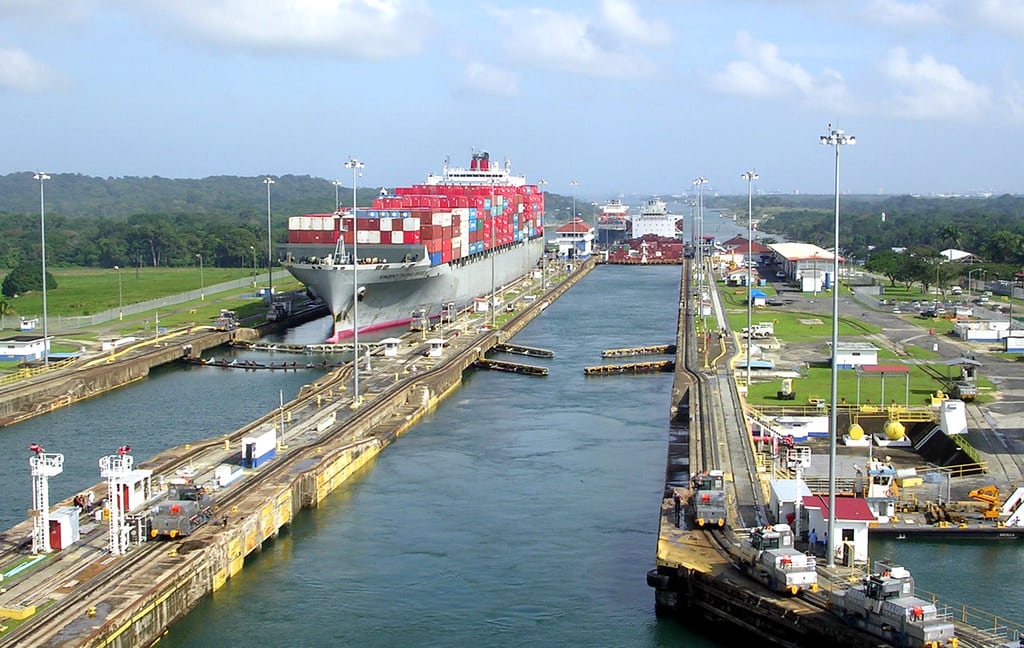The region just experienced its driest October since 1950, according to the Panama Canal Authority.
—
Unprecedented low levels of rainfall in October have intensified a months-long drought that has impacted global trade, forcing the Panama Canal Authority (ACP) to further restrict ship crossings in the coming months.
The Panama Canal, currently in its rainy season, is experiencing extreme drought conditions and has so far this year seen some of its lowest water levels ever, with huge repercussions on the transportation and shipping of consumer goods and food supplies across the world. The situation deteriorated further after the region saw its driest October since monitoring began 73 years ago – with about 41% below average precipitation – making 2023 the second-driest year for the same period.
“[W]ith less than two months left until the end of the rainy season, the Canal and the country face the challenge of the upcoming dry season with a minimum water reserve that must guarantee supply for more than 50% of the population and, at the same time, maintain the operations of the interoceanic waterway,” the ACP said in a statement on Tuesday.
Experts blame the extreme drought on the El Niño weather pattern, a climate phenomenon that causes the Pacific jet stream to move south and spread further east during the winter season, resulting in the warming of the Pacific Ocean and affecting temperatures and rainfall around the world.
Since the beginning of the 2023 dry season, the ACP adopted several water saving and conservation measures in the transit operation, including the use of water saving basins in the Neopanamax Locks and cross-filling in the Panamax Locks.
In July, Canal operators also began restricting the number of daily transits, lowering the number of vessels authorised to pass per day to a maximum of 32.
On Tuesday, the ACP announced further restrictions, as climate experts predicted rainfall to be 38% less than average for the rest of the year. According to Tuesday’s statement, the number of reservation slots will gradually drop every few weeks in the coming months, from the current 25 to 18 starting on February 1, 2024.
| Period | Number of reservation slots |
| November 3-7, 2023 | 25 |
| November 8-30, 2023 | 24 |
| December 1-31, 2023 | 22 |
| January 1-31, 2024 | 20 |
| As of February 1, 2024 | 18 |
The Panama Canal, one of the largest waterways in the world, is the main artery of global trade and supplies drinking water for almost half of the country’s population of 4.3 million. Located on the border between North and South America and connecting the Atlantic Ocean with the Pacific, the canal helps shipping companies transport grains, food supplies, and consumer goods to other parts of the world. In the fiscal year 2022, the Canal registered a total of 14,239 transits, transporting over 291 million tons of goods.
The restrictions have forced cargo ships to wait several hours or even days to cross the passage, raising goods costs and slowing deliveries at a crucial time, as festivities such as Thanksgiving and Christmas – which coincide with a significant increase in online sales – approach. According to ACP data, the average waiting time is currently 2.8 days.
Featured image: Flickr/Roger W.
You might also like: Amazon River Levels Hit Historic Low Amid Rapidly Worsening Brazil Drought


















